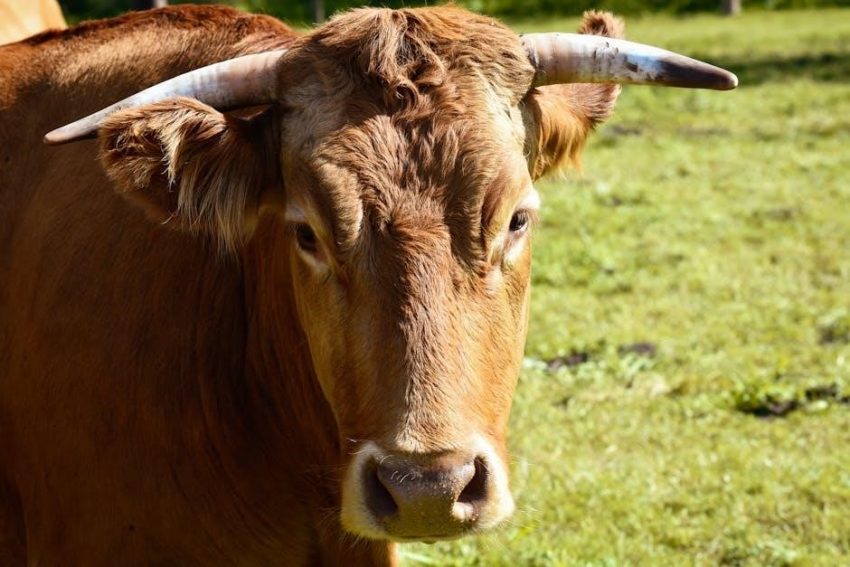Animal Farm by George Orwell is a timeless allegory exploring themes of power, corruption, and the loss of idealism through the lens of farm animals rebelling against their oppressive owner, creating a supposedly utopian society that ultimately mirrors the flaws of human governance.
1.1 Overview of Animal Farm
Animal Farm, a novella by George Orwell, is an allegorical tale that depicts the events of the Russian Revolution through the lives of farm animals. The story begins with Old Major, a wise boar, inspiring the animals to rebel against their oppressive owner, Mr. Jones. After the rebellion, the animals establish their own government, renaming Manor Farm as Animal Farm. Initially, the farm thrives under the principles of equality and fairness. However, corruption and power struggles among the leadership, particularly between Snowball and Napoleon, lead to the gradual erosion of these ideals, ultimately mirroring the rise of totalitarianism.
1.2 Significance of the Novel
Animal Farm holds profound significance as a timeless allegorical critique of political corruption, power dynamics, and the erosion of ideals. Orwell’s fable serves as a cautionary tale, reflecting the events of the Russian Revolution and the rise of totalitarianism. By depicting animals as symbols of historical figures and ideologies, the novel offers a universal commentary on human nature, highlighting how even noble revolutions can devolve into tyranny. Its themes remain relevant, warning against manipulation and the dangers of unchecked power.
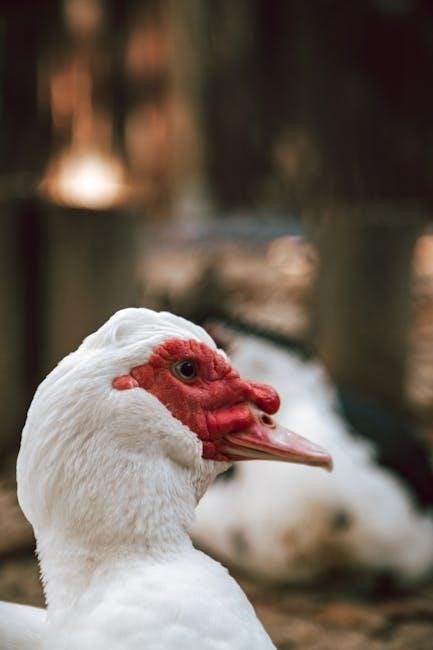
Background and Context
Animal Farm, set on Manor Farm, draws inspiration from the Russian Revolution and Stalinist era, exploring themes of power and corruption through the animals’ rebellion against Mr. Jones.
2.1 George Orwell’s Inspiration
George Orwell drew inspiration for Animal Farm from the events of the Russian Revolution and the rise of Stalinism. He aimed to critique the corruption of power and the betrayal of idealism through the lens of a farm where animals rebel against their oppressive owner. Orwell’s experiences with fascism and his disillusionment with Soviet communism deeply influenced the novella, using the farm as a metaphor for the Soviet Union and its leaders, with pigs symbolizing the ruling elite.
2.2 Historical Context: The Russian Revolution
The Russian Revolution of 1917 serves as the historical backdrop for Animal Farm. The overthrow of Tsar Nicholas II and the rise of Lenin’s Bolsheviks inspired Orwell’s depiction of the animals’ rebellion. However, the novella critiques the subsequent corruption under Stalin, where power consolidated among a few, mirroring the pigs’ rise to dominance. Orwell’s work reflects the idealism of the revolution and its tragic decline into authoritarianism, offering a cautionary tale about the dangers of unchecked power and manipulation.
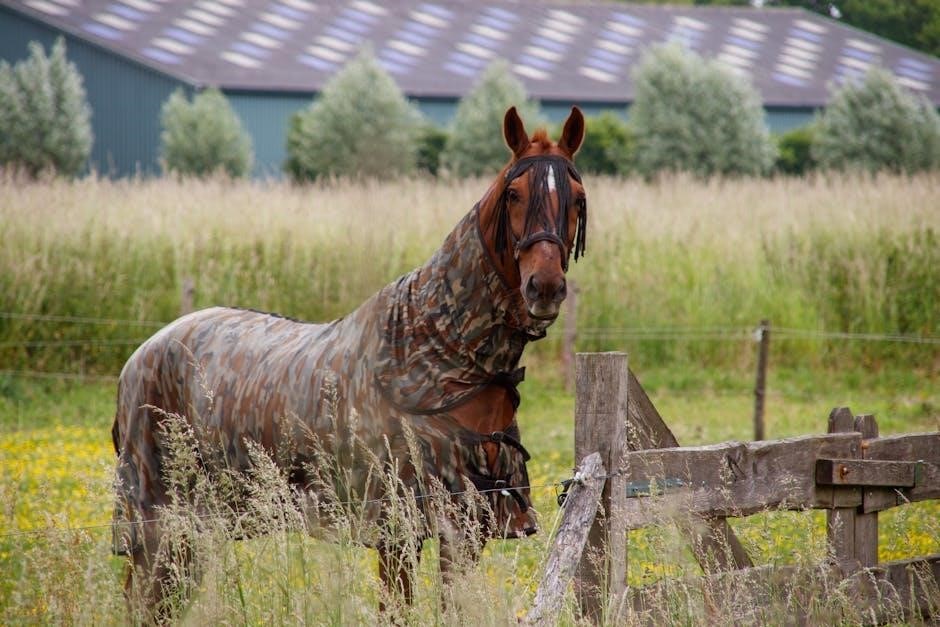
2.3 Manor Farm as a Representation of Russia
Manor Farm, the setting of Animal Farm, symbolizes pre-revolutionary Russia under Tsarist rule. The farm’s oppressive conditions and neglect by Mr. Jones mirror the widespread discontent among Russian peasants. The renaming to Animal Farm after the rebellion reflects the rebranding of Russia as the Soviet Union. Orwell uses the farm’s transformation to critique the corruption of revolutionary ideals, drawing parallels between the animals’ struggles and the real-life events of the Russian Revolution. This allegorical connection underscores Orwell’s commentary on power and governance.
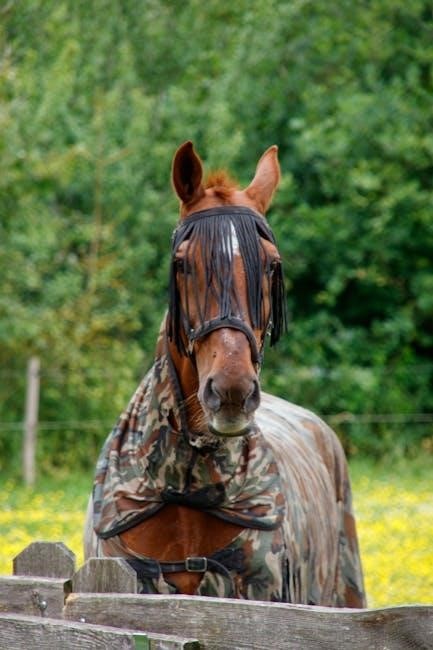
Main Plot Summary
Animal Farm recounts the rebellion of farm animals against their oppressive owner, Mr. Jones, inspired by Old Major’s vision of a utopian society. Renaming the farm, the animals, led by pigs Snowball and Napoleon, initially thrive but face internal conflicts and corruption, leading to a dystopian reality that mirrors the flaws of human governance and the betrayal of revolutionary ideals.
3.1 The Meeting with Old Major
In a pivotal scene, Old Major, a wise and aged boar, convenes a secret meeting in the barn, where he shares his vision of a utopian society free from human oppression. He condemns the cruelty of Mr. Jones and inspires the animals with the principles of Animalism, emphasizing unity and rebellion. Old Major’s impassioned speech ignites hope among the animals, setting the stage for their eventual uprising and the pursuit of a fairer future for all creatures on Manor Farm.
3.2 The Rebellion Against Mr. Jones
Driven by Old Major’s vision and their own suffering, the animals rise up against Mr. Jones, a cruel and negligent farmer. One night, Jones’s drunken negligence leads the animals to rebel, chasing him off Manor Farm. The pigs, led by Snowball and Napoleon, take charge, renaming the farm “Animal Farm.” The animals, filled with hope, work tirelessly to establish a self-sufficient society, believing their collective effort will create a better future free from human oppression and exploitation.
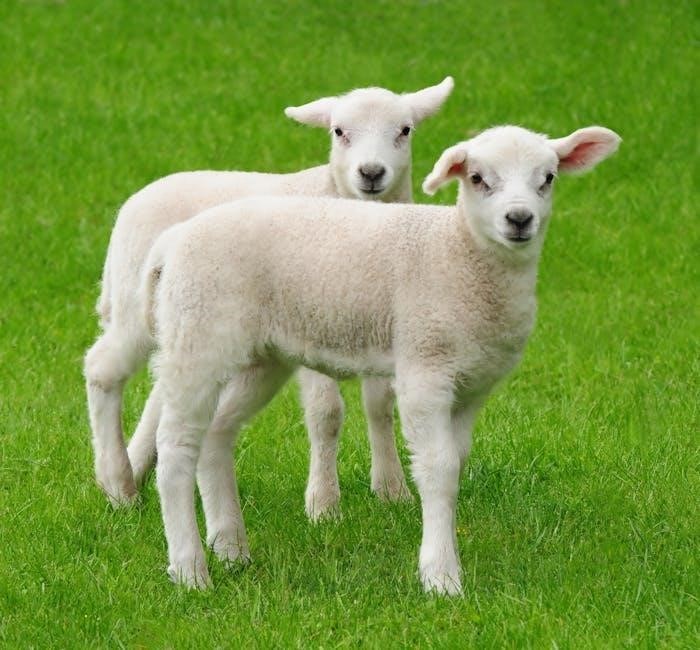
3.4 The Establishment of Animal Farm
After expelling Mr. Jones, the animals rename Manor Farm “Animal Farm” and establish a new order. The pigs, led by Snowball and Napoleon, create the Seven Commandments of Animalism, which are painted on the barn wall. The animals work collectively, with Boxer and the horses contributing most. The farm thrives initially, with resources shared equally, fostering a sense of unity and hope among the animals for a better future free from human tyranny.
3.5 The Early Success of Animal Farm
The early days of Animal Farm were marked by remarkable productivity and unity. Under the pigs’ leadership, the harvest was abundant, and the animals worked tirelessly together. Boxer’s dedication and the collective effort of all creatures fostered a sense of equality and hope. The farm thrived, with resources shared fairly, and the animals enjoyed a brief period of prosperity, believing their hard work would lead to a brighter, self-sufficient future free from human oppression.
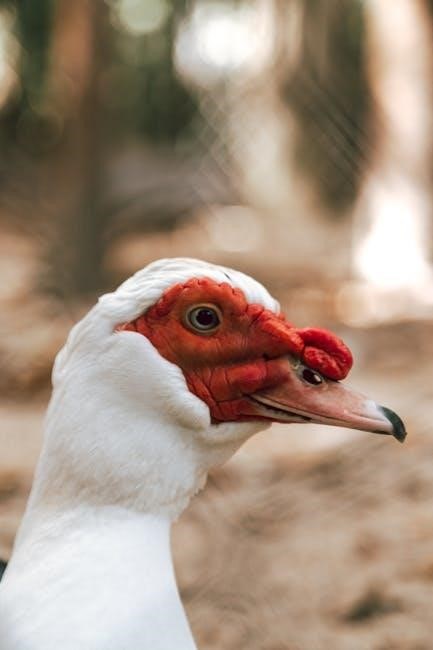
Key Characters
Napoleon, the power-hungry pig leader, manipulates and consolidates control. Snowball, the idealistic revolutionary, advocates for equality but is driven out. Boxer, a loyal horse, embodies hard work, while Benjamin, the wise donkey, remains skeptical of the farm’s leadership. Clover and Mollie represent differing attitudes toward the rebellion’s ideals.
4.1 Napoleon: The Power-Hungry Leader
Napoleon, a cunning and manipulative pig, emerges as the dominant leader of Animal Farm. He uses propaganda and fear to consolidate power, training a group of fierce puppies to enforce his rule. Napoleon’s greed for control leads him to betray the original ideals of the rebellion, manipulating the Seven Commandments to justify his actions. His rivalry with Snowball and his ruthless elimination of dissent symbolize the corrupting influence of power, mirroring totalitarian leaders like Stalin.
4.2 Snowball: The Idealistic Revolutionary
Snowball, a charismatic and intelligent pig, represents the idealistic spirit of the rebellion. He is a skilled orator and plays a key role in planning the rebellion and educating the animals about Animalism. Snowball’s vision for the farm includes modernization and equality, but his ambitious plans are often at odds with Napoleon’s authoritarian approach. His eventual expulsion from the farm by Napoleon symbolizes the suppression of idealism and the rise of totalitarianism, highlighting the corruption of revolutionary ideals.
4.3 Boxer: The Loyal and Hardworking Horse
Boxer, a strong and dedicated workhorse, embodies loyalty and perseverance. He is deeply committed to the success of Animal Farm, often working tirelessly to meet its needs. His motto, “I will work harder,” reflects his unwavering dedication. Despite his physical strain and injuries, Boxer remains steadfast in his efforts. However, his trust in the pigs ultimately leads to tragedy when they betray him, highlighting the exploitation of his good nature and the corruption of the farm’s ideals.
4.4 Benjamin: The Skeptical Donkey
Benjamin, the wise and aged donkey, is a symbol of skepticism and quiet resistance. He remains aloof from the farm’s political turmoil, observing the events with a cynical eye. Benjamin is deeply loyal to Boxer, often caring for him and offering advice. His sharp intellect and refusal to blindly follow the pigs’ rules highlight his independence and questioning nature, making him a voice of reason in a chaotic and corrupt environment. His character represents the disillusionment with false ideals.
4.5 Other Notable Characters
Clover, a kind and gentle mare, often acts as a voice of reason, showing deep concern for Boxer’s well-being. Mollie, a vain and self-indulgent mare, represents the selfishness that undermines collective goals. Moses, the tame raven, symbolizes religious manipulation, spreading tales of a mythical “Sugarcandy Mountain” to distract the animals. The sheep, with their mindless chanting of “Four Legs Good, Two Legs Bad,” embody blind obedience and the manipulation of propaganda. Each character reflects broader themes of corruption and societal flaws.
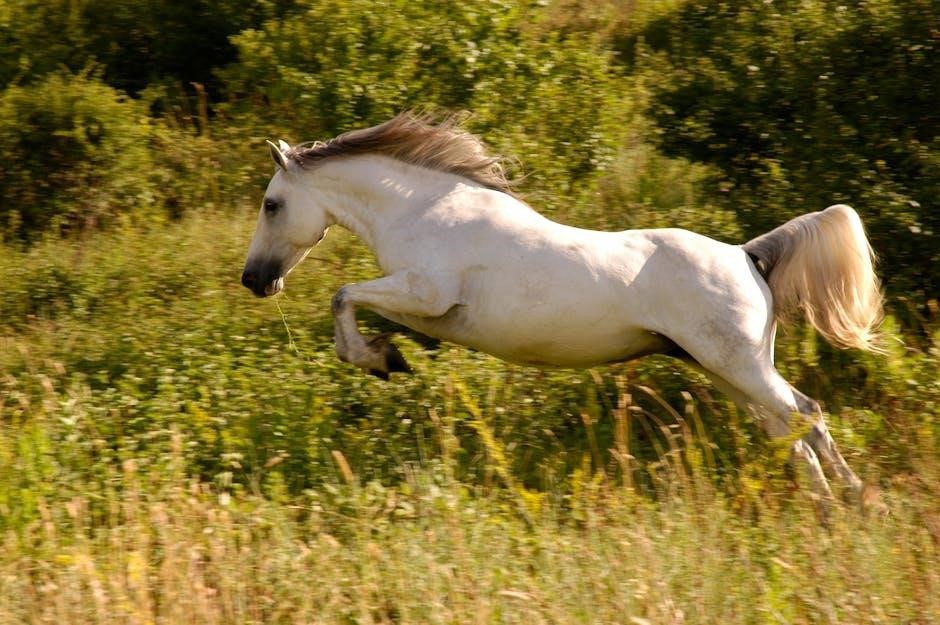
Themes and Symbolism
Animal Farm explores themes of power corruption, class inequality, and the dangers of propaganda, while symbolizing the rise and fall of revolutionary ideals through its allegorical narrative.
5.1 The Corruption of Power
Animal Farm vividly illustrates how power corrupts even those with noble intentions. The pigs, initially leaders of the rebellion, gradually abuse their authority, altering the Seven Commandments to justify their actions. Napoleon’s rise to dictatorship mirrors the ways authoritarian leaders exploit power, leading to oppression and inequality. This theme underscores the dangers of unchecked control and the erosion of revolutionary ideals, reflecting real-world political corruption and the cycles of history repeating themselves through greed and manipulation.
5.2 Class Divisions and Inequality
Animal Farm explores the inevitability of class divisions, even in a society founded on equality. The pigs, claiming intellectual superiority, elevate themselves above other animals, exploiting their power to justify unequal treatment. The alteration of the Seven Commandments, such as “All Animals are Equal / But Some Animals are More Equal than Others,” highlights the gradual entrenchment of inequality. Orwell critiques how systems designed to eliminate hierarchy often result in new forms of oppression, mirroring real-world social and economic disparities.
5.3 Propaganda and Manipulation
Propaganda and manipulation are central to the pigs’ consolidation of power in Animal Farm. Squealer, the pigs’ propagandist, distorts truth and logic to justify their actions, such as altering the Seven Commandments. This manipulation ensures compliance from other animals, who are kept in ignorance of the pigs’ corruption. Orwell illustrates how propaganda can erode critical thinking and enable authoritarian control, highlighting its role in maintaining power imbalances and suppressing dissent in societies.
5.4 The Loss of Idealism
The loss of idealism in Animal Farm is a poignant theme, as the animals’ initial vision of equality and freedom is gradually eroded by the pigs’ corruption. The Seven Commandments, once a symbol of unity, are altered to justify the pigs’ self-serving actions. The exploitation of Boxer’s dedication and the suppression of dissent highlight the disillusionment of the animals. Orwell critiques how revolutionary ideals can be distorted, leading to the betrayal of the original vision and the entrenchment of a new tyranny, mirroring human societies’ failings.
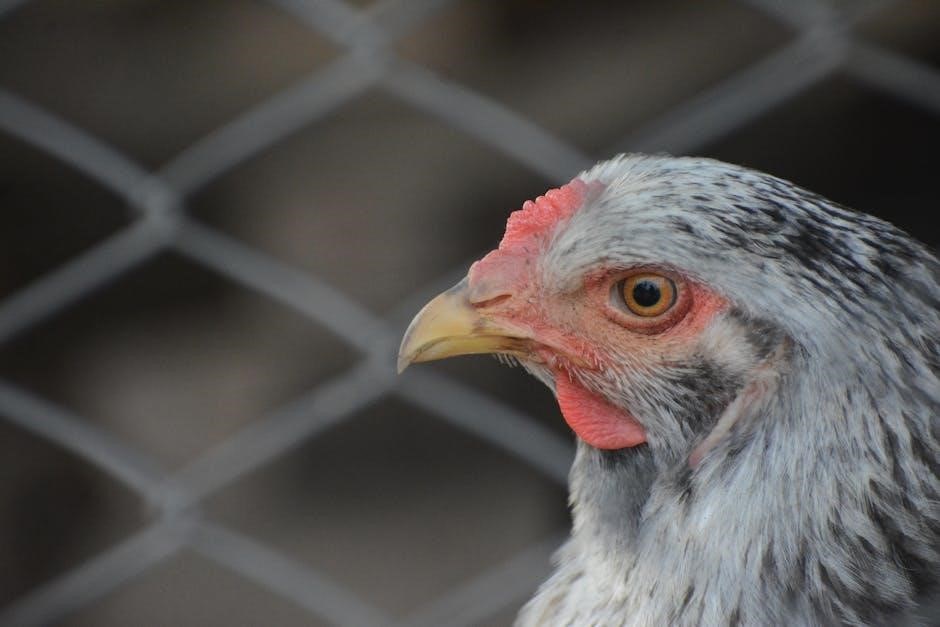
Allegorical Significance
Animal Farm serves as a powerful allegory for the Russian Revolution, with characters and events symbolizing the rise and corruption of Soviet leadership under Stalin, reflecting Orwell’s critique of totalitarianism.
6.1 Representation of the Russian Revolution
Animal Farm is a direct allegory of the Russian Revolution, with Manor Farm symbolizing Russia and the animals representing key figures. The rebellion against Mr. Jones mirrors the overthrow of the Tsar, while Napoleon and Snowball embody Stalin and Trotsky, respectively. The power struggle between them reflects the conflicts within the Bolshevik Party. The pigs’ gradual corruption and manipulation of the seven commandments symbolize the Soviet leadership’s betrayal of revolutionary ideals, ultimately leading to a totalitarian regime that mirrors Stalinism.
6.2 Stalin and the Rise of Totalitarianism
Napoleon’s rise to power in Animal Farm mirrors Stalin’s consolidation of control in the Soviet Union. Like Stalin, Napoleon uses propaganda, manipulation, and fear to maintain authority, crushing dissent and eliminating opposition. The pigs’ gradual monopolization of power and privileges reflects Stalin’s totalitarian regime, where ideals were distorted to justify authoritarian rule. Squealer’s role in justifying Napoleon’s actions parallels Stalin’s propagandists, highlighting how totalitarian leaders manipulate truth to maintain control and suppress rebellion.
6.3 The Fall of the Revolution’s Ideals
Animal Farm illustrates the tragic erosion of revolutionary ideals, as the animals’ shared vision of equality and freedom devolves into corruption and oppression. The pigs, led by Napoleon, gradually abandon the principles of Animalism, exploiting power to serve their own interests. The manipulation of the Seven Commandments and the exploitation of Boxer’s loyalty exemplify how the revolution’s ideals are betrayed, mirroring the real-life failures of the Russian Revolution, where Communist ideals were distorted by authoritarianism and greed.
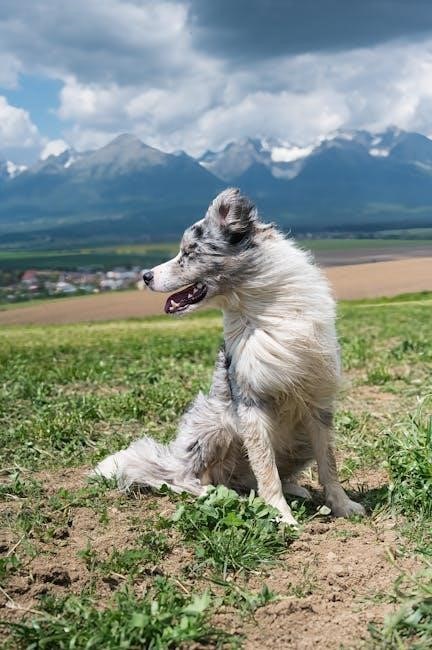
PDF Summary and Download
Animal Farm PDF summaries are widely available, offering concise analyses of Orwell’s novel. SparkNotes and LitCharts provide detailed guides, while free PDF downloads can be found on platforms like Open Library and BookWolf, making it easy for readers to access and study the allegorical tale.
7;1 Reliable Sources for PDF Downloads
SparkNotes, LitCharts, and BookWolf are trusted platforms offering free PDF summaries and analyses of Animal Farm. These resources provide detailed chapter breakdowns, themes, and character insights, making them invaluable for students and readers. Additionally, sites like Open Library host free eBook versions, while educational portals offer downloadable guides. These sources ensure easy access to comprehensive materials, aiding in-depth study and understanding of Orwell’s allegorical masterpiece.
7.2 SparkNotes and LitCharts Resources
SparkNotes and LitCharts provide comprehensive resources for studying Animal Farm. Both platforms offer detailed summaries, character analyses, and theme explanations, making them invaluable for understanding Orwell’s allegory. SparkNotes includes chapter-by-chapter guides, while LitCharts offers visual infographics and downloadable PDFs. These tools are perfect for students seeking to grasp the novel’s deeper meanings and prepare for exams or discussions. Their clear, concise formats ensure easy access to key insights about the story and its themes.
7.3 Where to Find Free PDFs
Free PDFs of Animal Farm summaries and analyses are available on platforms like Open Library, BookWolf, and educational websites. These resources provide detailed chapter summaries, character analyses, and theme explanations. Students can also find free PDF downloads through platforms like SparkNotes and LitCharts, which offer comprehensive study guides. Additionally, sites like PDF Drive and SlideShare host free downloadable materials, making it easy to access study aids for Animal Farm.
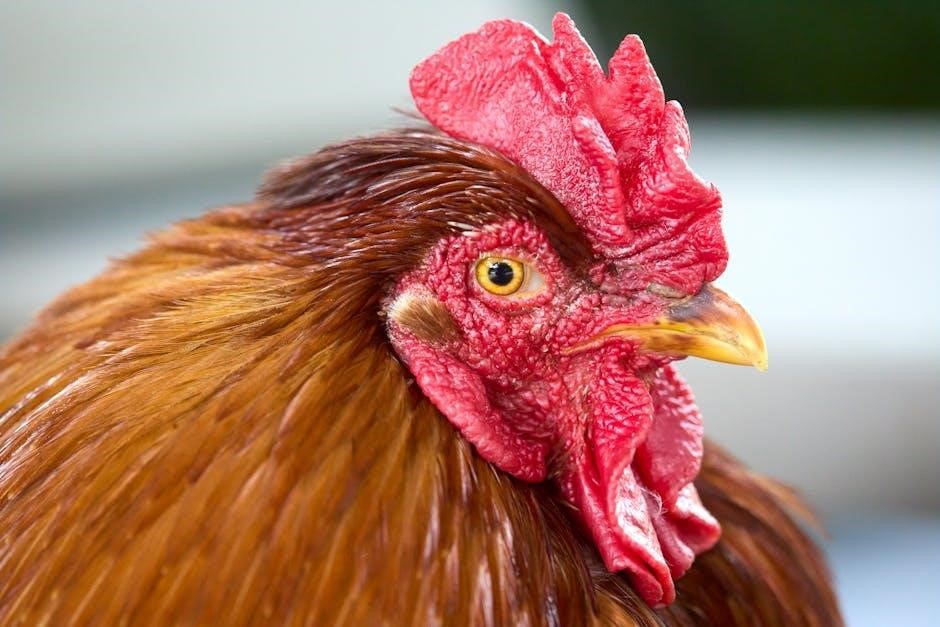
Reception and Impact
Animal Farm was initially met with mixed reviews but eventually gained recognition for its profound commentary on politics and society. Its lasting influence solidified it as a political literature classic and educational tool.
8.1 Initial Reception of the Novel
Animal Farm received mixed reviews upon its release in 1945, with some critics praising its bold allegorical critique of Stalinism, while others dismissed it as overly simplistic. Orwell’s socialist stance yet opposition to totalitarianism sparked debate, particularly among left-wing circles. The novella’s clarity and biting satire, however, soon earned it widespread acclaim, solidifying its reputation as a powerful political allegory and a timeless commentary on human nature and governance.
8.2 Lasting Influence and Legacy
Animal Farm has become a cultural and literary touchstone, widely studied in schools and universities worldwide. Its timeless themes of power, corruption, and the erosion of ideals resonate across generations. The novella’s allegorical nature allows it to transcend historical contexts, making it a powerful tool for understanding political and social dynamics. Its influence extends beyond literature, inspiring adaptations in film, theater, and popular culture, cementing Orwell’s work as a enduring critique of authoritarianism and a testament to the importance of critical thinking.
Animal Farm remains a profound critique of power and corruption, offering timeless lessons on the dangers of unchecked authority and the erosion of ideals, ensuring its enduring relevance.
9.1 Summary of Key Points
Animal Farm by George Orwell is a novella that tells the story of a group of animals rebelling against their oppressive owner, Mr. Jones, to establish a supposedly utopian society. Inspired by Old Major’s vision, the animals create a set of Seven Commandments to govern their new farm. However, the pigs, led by Napoleon, gradually corrupt the original ideals, leading to a totalitarian regime. The novel serves as an allegory for the Russian Revolution and the rise of Stalinism, highlighting themes of power corruption, manipulation, and the loss of idealism. Orwell’s critique remains relevant today, offering insights into the dangers of unchecked authority and the erosion of democratic principles.
9.2 The Enduring Importance of Animal Farm
Animal Farm remains a timeless classic due to its universal themes and timeless critique of power dynamics. Orwell’s allegory not only reflects the Russian Revolution but also serves as a cautionary tale about corruption, manipulation, and the erosion of ideals. Its exploration of human nature, through animal characters, continues to resonate, offering insights into political and social systems. The novella’s enduring relevance lies in its ability to educate readers about historical events while warning against the dangers of authoritarianism and ideological exploitation.
